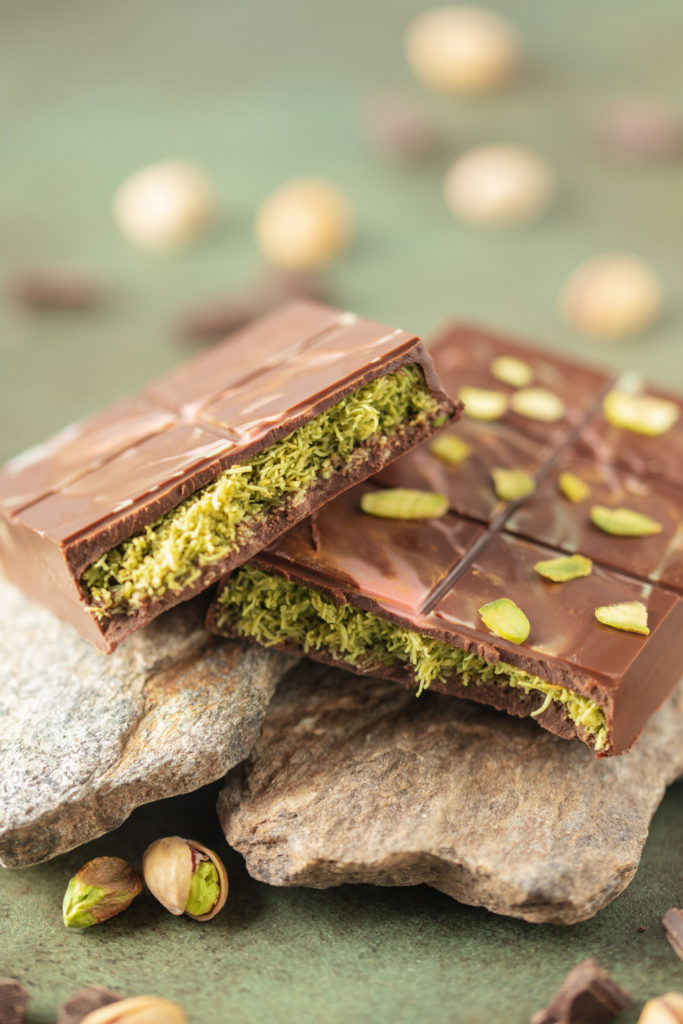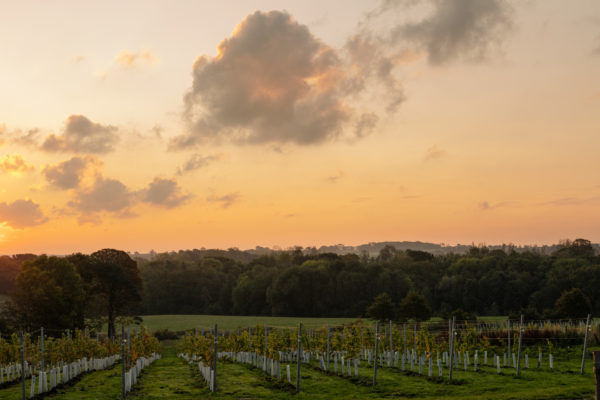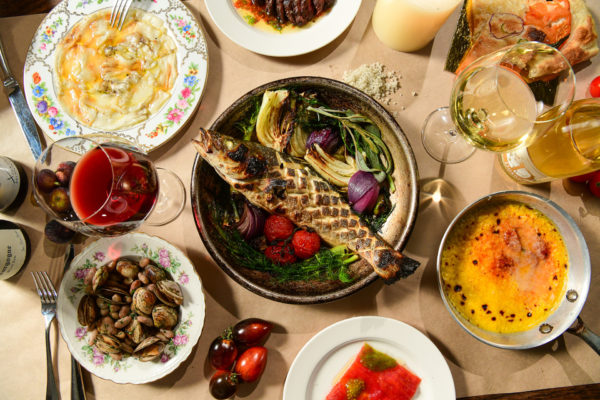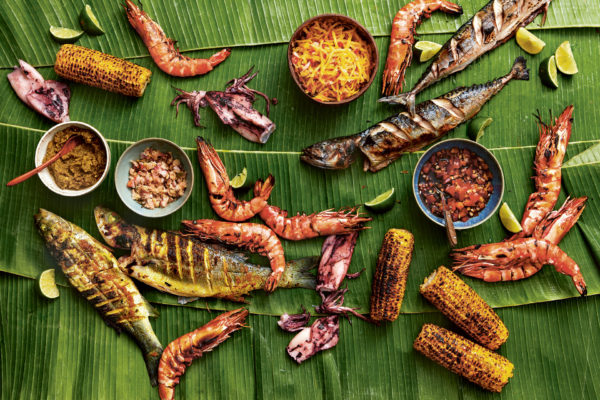Nancy Singleton Hachisu: ‘I am a staunch supporter of disappearing food traditions’
By
2 years ago
The chef tells us about life on her organic farm in Japan
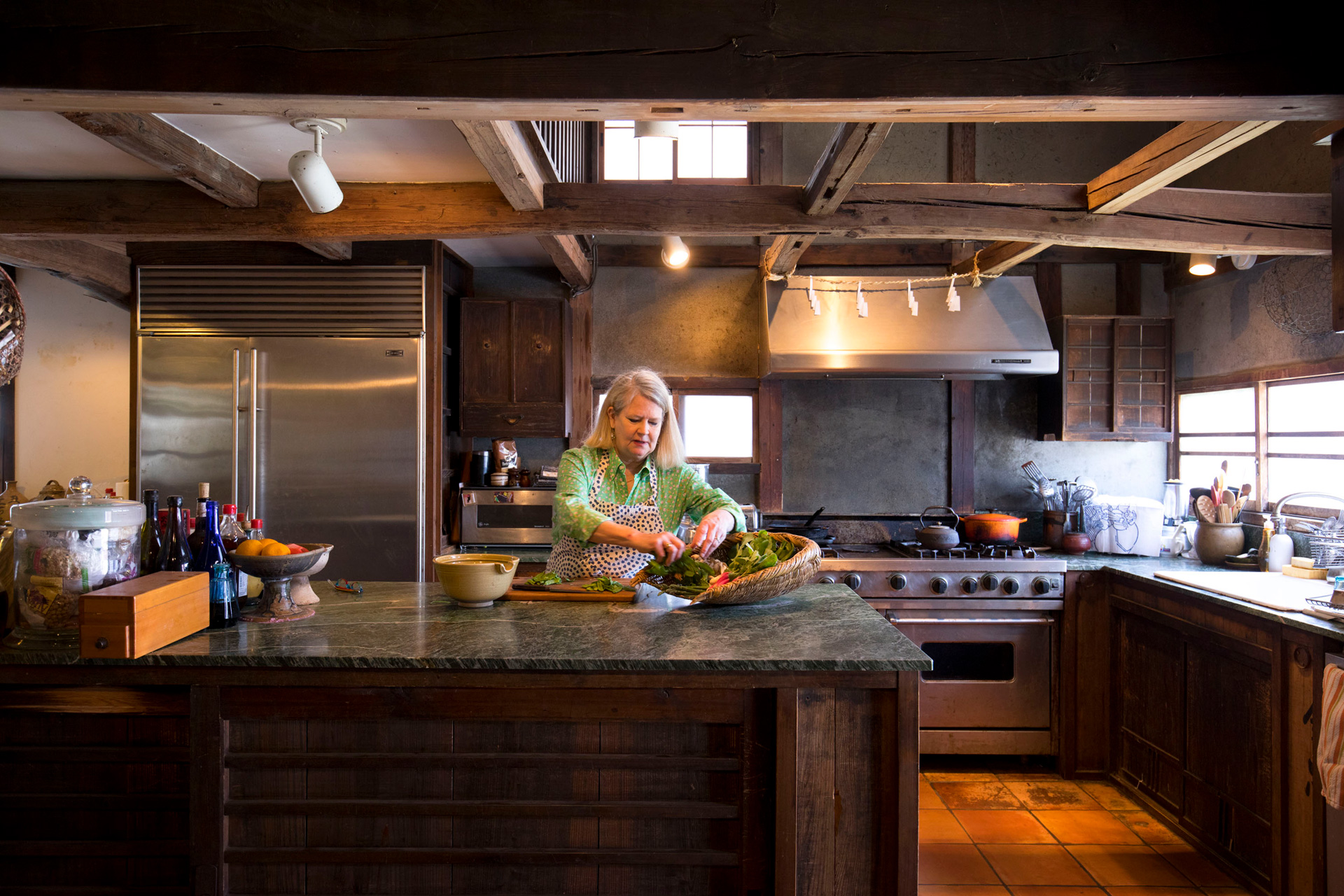
When Californian food writer Nancy Singleton Hachisu travelled to Japan in 1988, she didn’t expect it would become her hometown. The plan was to stay for a year to immerse herself in the culture and learn the language, but she ended up falling in love with a Japanese farmer, getting married and moving into his rural farmhouse in the Saitama countryside. Nancy took quickly to life on the farm, learning about eating seasonally and organically, and went on to write a number of cookbooks focused on Japanese cuisine. Her latest, Japan: The Vegetarian Cookbook, explores Japan’s history with vegetarian cooking, complete with hundreds of plant-based recipes. She tells us more below.
Q&A with Nancy Singleton Hachisu
Tell us about your new book. What was your ambition in writing it?
Vegetarian Japanese cuisine as a genre is often overlooked in Japanese cookbooks outside of Japan – perhaps because Japanese vegetarian cuisine is a bit out of reach for most visitors to Japan. Unless one goes to special temple food restaurants, mostly you will not find eateries in Japan dedicated to vegetarian cuisine. Ambition is a big word, but I guess I hope that the book will allow people to prepare vegetable-forward Japanese meals in their homes since these dishes are less likely to be found in restaurants outside of Japan.
How would you describe your food ethos?
When I first came to Japan in 1988, I had a vague yet basic knowledge of the seasons. But after several years of only eating the seasonal organic vegetables we had on the field, I reached a point where these were the only vegetables that had taste. I am not sure if this speaks to food ethos or just a way of life. As the years went by and finances improved, I increasingly sought out better and better pantry items. Yet it was not until I began publishing Japanese cookbooks (after living in Japan for almost 25 years!) that I truly dove into researching and understanding Japanese artisanal ingredients. So, regarding food ethos, I suppose you can say that I am a staunch supporter of, and advocate for, these disappearing food traditions – and that is why I write about them and share their tastes with the world when I am on tour.
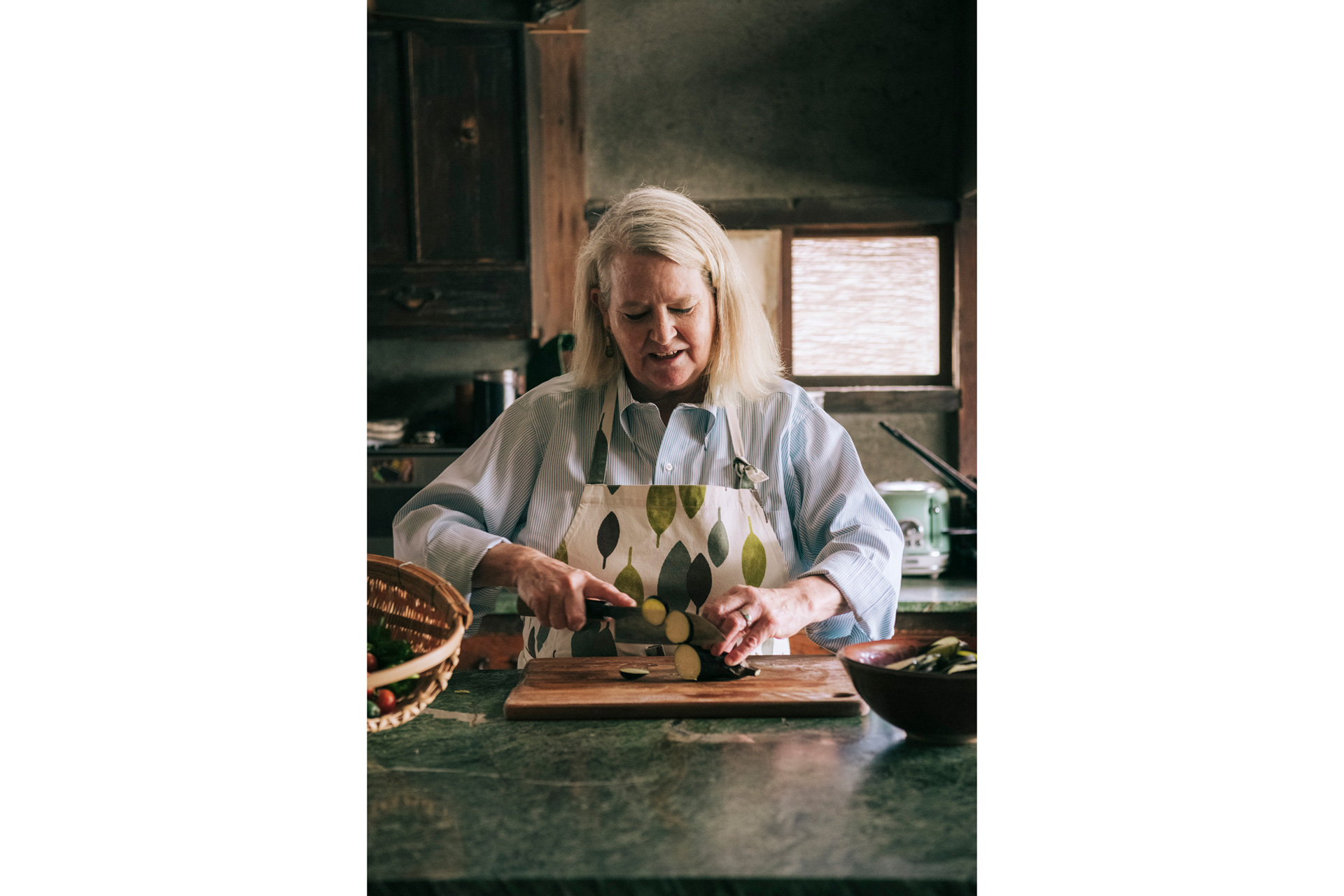
When did you first become interested in food?
I remember eating spinach that my father had cooked and served us on the outside patio of the house we lived in until I was five years old. For some reason we all loved spinach! Also, there is a photo of me from around that age where I am concentrating intensely on dipping my graham crackers in my milk – I cannot remember a time when I was not hyper interested in the food around me. I started baking cookies when I was about 10 years old and soon moved onto bread, since it did not require many ingredients. From there I progressed to making dinners for the family and cooking became a way I expressed myself and found my center.
How did you find yourself living in Japan?
After Stanford, I found myself working in the bar and restaurant business in San Francisco for about eight years. It was a lot of fun and a very intense food educational experience but maybe too much fun! I decided to apply to law school and at the same time get a masters in East Asian Studies/Japanese because it seemed wasteful not to add another language into my repertoire if I was going to graduate school. Why Japanese? Because I loved sushi. The peaceful feeling that enveloped me when I slipped into a seat and style of eating a few bites of raw fish and rice at a time grabbed me deeply. I went to Japan, intending to stay for a year to get some basics in Japanese, but ended up staying for the last 35 years because I got caught by the Japanese farmer boy!
How does the food scene in California compare with that of Japan?
Although I visit California a few times a year, I haven’t lived there in more than three decades. But my impression is that there are a lot more organics and there is a hyper awareness regarding local ingredients that is still resurging here in Japan. The food all over America (and even California) became quite bad in the name of convenience but thankfully it is slowly getting better. Japan did not get as bad, but most definitely, convenience foods are a way of life here. Farmers markets are not common, but each country town has their own Japan agriculture stand, so there is hope. Organics are still only 0.003 percent of all vegetables, but the tide is slowly turning.
Any top tips for cooking Japanese vegetarian food?
Stock your pantry with the best available Japanese base seasonings and then use good local vegetables.
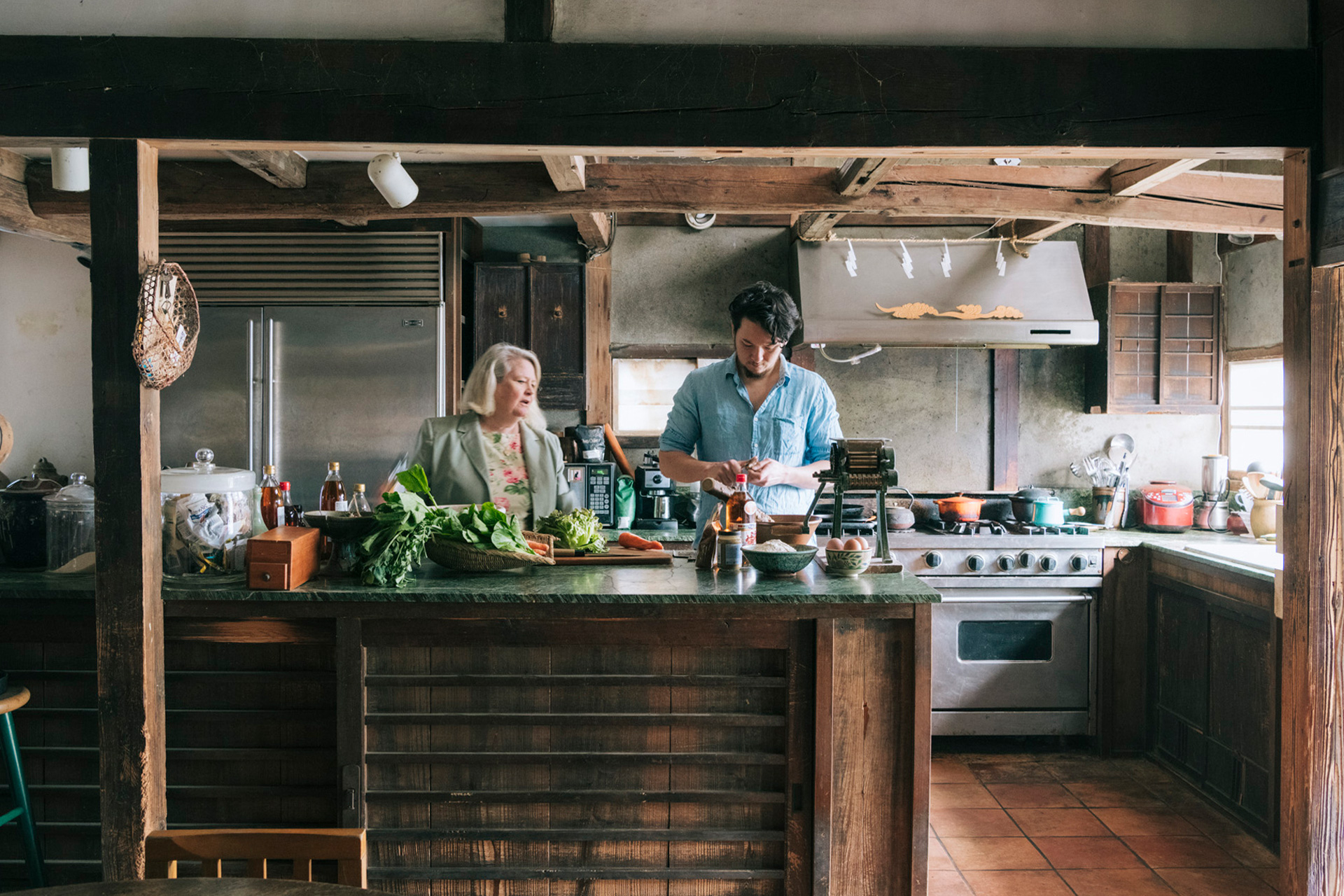
What would you cook for an easy meal at home?
- Western: Local Japanese fish meuniere, field greens salad and herbs with best olive oil and artisanal rice vinegar, small boiled potatoes with butter and parsley, green beans with fresh tomato coulis.
- Japanese: simple brown rice miso soup with cubes of silken tofu, strips of usuage (fried tofu), and chopped negi (scallions), chrysanthemum greens goma-ae (sesame sauce), cucumber in ginger vinegar, and a small bowl of my husband’s rice.
Three most important ingredients in Japanese cooking?
I don’t think I can keep the most important ingredients to three! Here are the top five: miso, shoyu, mirin, rice vinegar, and Japanese sea salt.
Most memorable meal of all time?
- In Japan: Any time I eat alone at Kisetsu Ryori Nakashima in Hiroshima.
- In the world: Sunday lunch at Maison Sota in Paris.
Japan: The Vegetarian Cookbook by Nancy Singleton Hachisu is out now (Phaidon Press)



